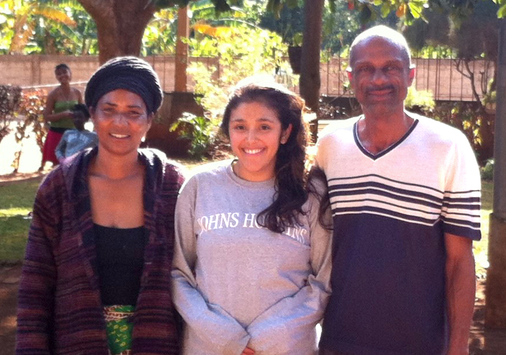Courses
2024 - 2025
For this academic year's course catalog, please visit our Academic Catalog site. For courses currently offered, please refer to the Schedule of Classes.
Introduction to themes, concepts and approaches to International Studies from an interdisciplinary perspective. The course explores key concepts of modernity in the context of specific cultural, political, and economic experiences within a historical framework. This course must be taken before the end of the sophomore year.
A general category used only in the evaluation of transfer credit.
The main goals of this course are to introduce sophomore students, who have completed INTL100, to some of the key themes and theories within the purview of International Studies to help them shape their individual thematic/regional focus. The course also provides opportunities for students to examine various world problems through an interdisciplinary lens, drawing on both political-economic and sociocultural analytical frameworks in various disciplines. Finally, students learn the basics of academic research and writing processes, i.e., formulating a well-defined topic, posing a relevant research question, finding and interrogating appropriate sources, justifying the research’s intellectual contribution to a broader scholarly audience and, when applicable, to the efforts to solve real-world problems, through writing and revising a carefully crafted prose. Among numerous debates and issues that International Studies scholars grapple with, the course focuses on four broadly conceived themes: economic development, nationalism and national identity, transnational migration, and mediated and material culture. After learning major scholarly approaches to theorize each of these themes, students each develop an individual research project and write a scholarly paper, complete with abstract, introduction, literature review, case study, and conclusion. At the end of the course, students are expected to be able to formulate, broaden, and contextualize their thematic and regional focus within the interdisciplinary scheme of International Studies, and be equipped with skills to conduct academic research.
Prerequisite(s): INTL 100.
This course aims to help students develop basic research competencies they can use in future classes while providing them with practical research skills they can use during their off-campus (OCS) program. The course draws from a diverse range of research projects and scholarship that helps students develop a greater understanding of, and appreciation for, the value of global research. Students learn the value of a global, transdisciplinary framework that transcends disciplinary borders, resists methodological nationalism, and draws on diverse methods and methodologies that help students to decenter Western-centric forms of knowledge production while being attentive to the importance of local-global flows and ways of thinking. Students learn to use mixed-methods (qualitative and quantitative) research, including archival research, compiling and using data sets, online surveys, interviews, ethnography, textual and discourse analysis, data visualization, as well as the basics of statistical analysis (both techniques and common software). The course also helps students develop their intellectual focus for International Studies (INTL) major, both thematically and geographically.
A mid-level topics course that allows students to build upon concepts and theories introduced in INTL-100 and 200. It explores, in specific and contextualized terms, particular issues associated with global linkages in contemporary and historical contexts. The course takes into account cultural, economic and political factors. The specific topic or theme varies according to the interest of the faculty member teaching the course. Students may take more than one section of this course.
A general category used only in the evaluation of transfer credit.
Directed studies are undertaken at the initiative of the student and may involve any topic acceptable to the student and an instructor. Written consent.
Directed studies are undertaken at the initiative of the student and may involve any topic acceptable to the student and an instructor. Written consent.
Written consent.
Written consent.
This seminar integrates the three core courses, the four elective courses related to the student's thematic/regional focus, the off-campus experience and the language training, into a culminating research project. It focuses on theoretical tools, frameworks and methodologies in International Studies. This seminar emphasizes the development of independent research skills and scholarly writing in connection with a research project based on individual students' interests.














